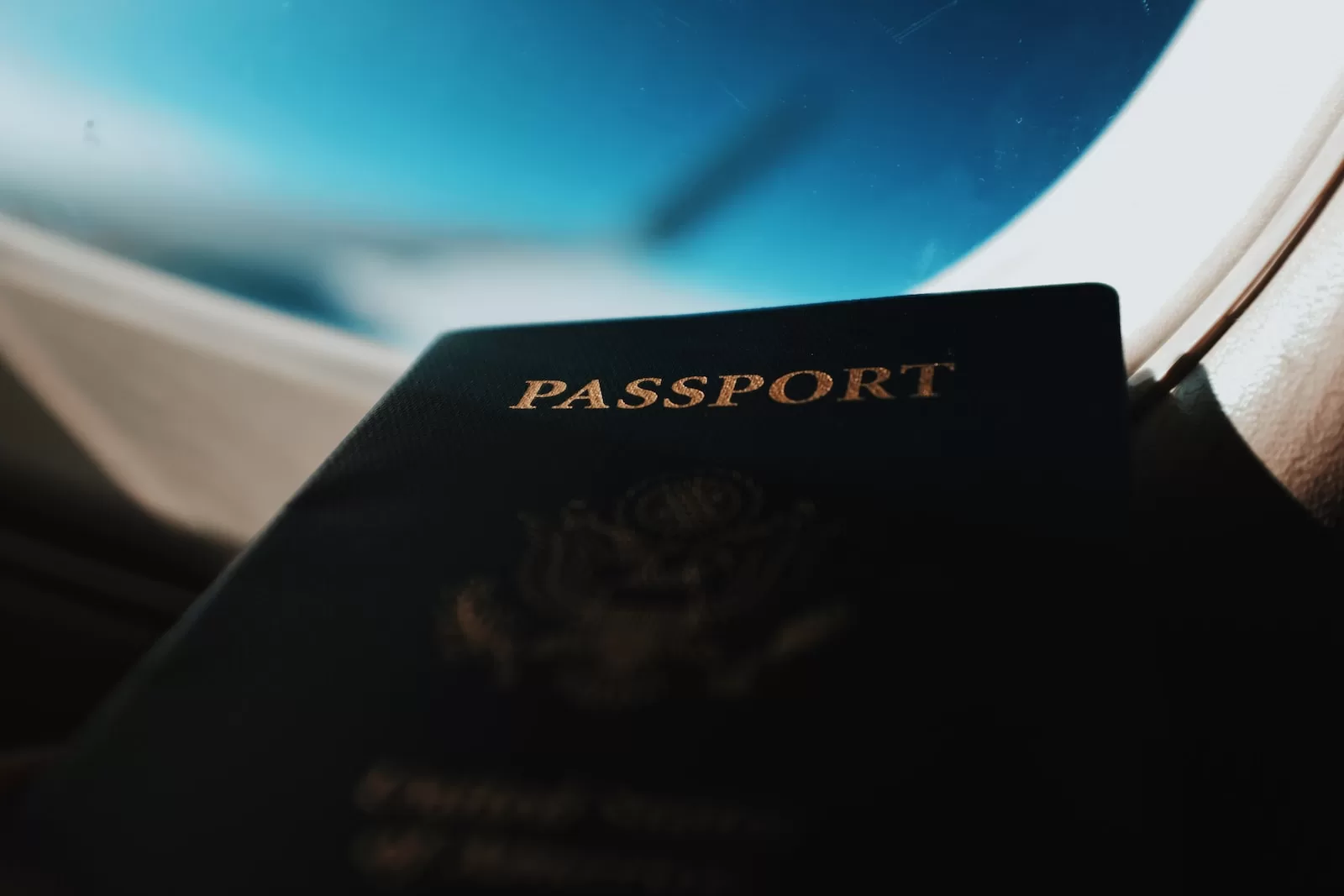Travel Essentials for International Travelers
Before embarking on an adventure abroad, there are key steps involved in preparing for international travel. This preparation includes getting the necessary travel consultation and vaccinations and conducting thorough research about your travel destination.
Travel Consultation and Vaccinations
International travel often exposes travelers to a new environment and potential health risks. Therefore, travelers need to consult with a healthcare provider at least 4-6 weeks before international travel to ensure they are up to date on all routine vaccines and to receive any recommended travel vaccines.
The specific vaccines required for international travel will depend on the destination, duration of stay, activities planned, and the traveler’s overall health (CDC Travel). For example, travelers may need vaccines for diseases such as hepatitis A, hepatitis B, typhoid, yellow fever, meningococcal disease, and Japanese encephalitis, among others.
Some vaccines may require multiple doses or take time to become fully effective, so it is important to start the vaccination process early. In addition to vaccines, travelers should also be aware of other health-related measures such as insect protection, safe food and water practices, and preventing the spread of illnesses through good hygiene practices.
Researching Travel Destination
Before traveling internationally, it is important to learn about your destination and any safety and security concerns (Travel.State.Gov). This includes understanding the local culture, laws, and customs, and any travel advisories or warnings in place.
Researching your destination also involves familiarizing yourself with the local language, currency, and transportation options. This can help you navigate your surroundings more easily and avoid potential scams or misunderstandings.
Whether you’re planning a solo adventure or a family vacation, preparing for your trip includes packing the right travel essentials for international travel. From the travel essentials for women, and travel essentials for men, to the travel essentials for long flights, we have comprehensive checklists to help you pack everything you need for your journey.
By taking the time to properly prepare for your trip, you can ensure a smoother and more enjoyable travel experience. So, start planning, pack your travel essentials, and get ready for an exciting adventure abroad.
Essential Travel Documents
When preparing for international travel, certain documents are crucial to ensure a smooth and hassle-free journey. These include your passport and identification, as well as travel insurance.
Passport and Identification
The most important document for international travel is your passport. It acts as your identification and is required for entering or leaving most countries. It’s advisable to ensure that your passport is valid for at least six months beyond your planned return date.
In addition to your passport, it’s also important to carry other forms of identification, such as a driver’s license or ID card. It is advisable to keep copies of important documents like your passport and driver’s license in a secure location separate from the originals. This can be incredibly helpful in case they are lost or stolen during your trip.
Another useful resource for US citizens traveling abroad is the Smart Traveler Enrollment Program (STEP). This program allows travelers to enroll their trip with the nearest U.S. Embassy or Consulate, making it easier for them to receive critical information and assistance while traveling.
Travel Insurance
Another crucial aspect of planning your international travel is ensuring you have adequate travel insurance. Travel insurance is designed to cover unexpected costs and disruptions that can occur while traveling. This includes coverage for medical emergencies, trip cancellations, and lost or stolen belongings.
When choosing travel insurance, it’s important to select a policy that offers comprehensive coverage for your needs. This includes medical coverage, particularly for medical evacuation and repatriation services, as healthcare costs and standards may vary in different countries (HHS.gov).
It’s recommended to carefully review the terms and coverage of the insurance policy before purchasing it. Understanding the specifics of what your policy covers can help you avoid unexpected costs or complications if things don’t go as planned during your trip.
Having the right documents in place is a key part of preparing for international travel. By ensuring you have a valid passport, additional identification, and comprehensive travel insurance, you can help secure a more seamless and worry-free journey. For more tips on preparing for international travel, check out our travel essentials checklist.
Travel Financial Planning
When preparing for international travel, managing finances is a critical aspect of your travel preparations. This includes understanding the local currency and exchange rates of your destination country, as well as selecting the most suitable payment methods.
Currency and Exchange Rates
When planning your trip, it’s important to research and understand the local currency of the country you’re visiting to ensure you have an idea of the exchange rate. This will enable you to make informed financial decisions during your travel.
In addition to understanding the currency, it’s advisable to carry a small amount of cash in the local currency of your destination for immediate expenses and emergencies upon arrival. This can be especially helpful for covering small costs like taxi fares or snacks before you get a chance to visit a local ATM or bank.
Payment Methods for International Travel
When it comes to payment methods for international travel, a combination of cash, credit cards, and a prepaid travel card is recommended. Each form of payment has its advantages and disadvantages, and it’s best to have more than one option available.
| Payment Method | Advantages | Disadvantages |
|---|---|---|
| Cash | Can be lost or stolen, and it is not recommended to carry large amounts | Widely accepted, convenient, offers fraud protection |
| Credit Cards | Widely accepted, convenient, offer fraud protection | May have foreign transaction fees, not accepted everywhere |
| Prepaid Travel Card | Can be loaded with multiple currencies, not linked to your bank account | May have fees for reloading or withdrawing cash, not accepted everywhere |
Before your trip, notify your bank and credit card companies about your travel plans to prevent your cards from being flagged for suspicious activity and potentially blocked. Also, be aware of any fees associated with using your credit cards abroad, such as foreign transaction fees or ATM withdrawal fees. Consider choosing cards with lower or no fees to save money.
Using ATMs to withdraw cash in the local currency is usually the most convenient and cost-effective way to obtain cash while traveling abroad. However, it’s important to choose ATMs located in secure and well-lit areas for safety.
Lastly, remember to check if your credit cards are accepted in your destination country and to carry a backup credit card in case your primary one is lost, stolen, or has any issues.
Financial planning is a crucial part of your travel essentials for international travel. Being prepared financially can help you enjoy your trip without unnecessary stress over money matters.
Health and Safety Measures
When traveling internationally, it is important to take necessary health and safety precautions. Among the travel essentials for international travel, a well-stocked travel first aid kit and necessary vaccinations are of utmost importance.
Travel First Aid Kit
A travel first aid kit is essential for handling minor medical issues during your trip. According to Cleveland Clinic, it should include items to take care of mild illnesses and injuries, without needing to pack an entire medicine cabinet.
Here are some essential items to include in your travel first aid kit:
- Pain relievers
- Antihistamines
- Anti-diarrheal medications
- Adhesive bandages, gauze pads, and medical tape
- Thermometer
- Tweezers
- Oral rehydration salts
These items can help treat everything from minor cuts and injuries to unexpected allergies or illnesses. For instance, adhesive bandages, gauze pads, and medical tape are essential for basic wound care and can help prevent infection. A thermometer can be particularly useful for monitoring your body temperature and identifying signs of fever or illness. Tweezers can be used to remove splinters, ticks, or other foreign objects from the skin. Oral rehydration salts can help prevent dehydration in hot climates or during adventurous activities.
Vaccinations for International Travel
In addition to packing a first aid kit, it’s crucial to prepare for international travel by ensuring you’re up to date on all routine vaccines and receiving recommended travel vaccines. CDC Travel suggests consulting with a healthcare provider at least 4-6 weeks before your trip.
The specific vaccines required will depend on several factors, including your destination, duration of stay, planned activities, and overall health. Vaccinations are an essential part of preparing for international travel, as they can protect you against diseases that may be common in other parts of the world but rare in your home country.
Remember, health and safety measures are a vital part of the travel essentials for international travel. Prioritize your well-being, and you’ll be set to enjoy your international explorations to the fullest. For more tips on what to pack for your trip, check out our travel essentials checklist.
Staying Connected Abroad
In the era of digital connectivity, staying connected while traveling internationally is a vital part of the travel experience. It allows you to keep in touch with loved ones, access important information, and share your travel experiences in real time. This section explores the different phone and internet options available for international travelers and discusses how to use offline apps effectively.
Phone and Internet Options
When traveling internationally, it’s important to have a reliable phone and internet connection. Many smartphones now come with a dual SIM feature, allowing you to use two SIM cards at once, which can be helpful for international travel.
To use your phone abroad, check if your phone is unlocked and compatible with international SIM cards. If not, you can consider renting or buying a phone at your destination.
Portable Wi-Fi hotspots can provide a secure and reliable internet connection while traveling internationally, while virtual private networks (VPNs) can help protect your online data and keep your internet activity private when using public Wi-Fi networks abroad.
When planning your travel essentials for international travel, it’s important to check the compatibility of your phone and charger with the electrical outlets in the country you’re visiting, as plug shapes and voltages can vary.
Using Offline Apps
Offline apps can be a lifesaver when navigating unfamiliar places in a foreign country without an internet connection. Before your trip, download offline maps and translation apps, as they can work without an internet connection and can save you data usage and roaming charges.
Staying connected while traveling internationally is not just about having the right technology, but also about being prepared and adaptable. By understanding your phone and internet options and downloading useful offline apps, you can make your travel experience more enjoyable and stress-free. Don’t forget to check out our travel essentials checklist for a comprehensive list of must-have items for your next trip.
Packing the Essentials
When it comes to international travel, packing efficiently and effectively is crucial. Including the right items in your luggage can make the difference between a smooth journey and an unpleasant one. Here, we will look at the essential personal items and travel gadgets that should be on every traveler’s packing list.
Essential Personal Items
Certain personal items are absolute must-haves when traveling internationally. Among these, a well-stocked travel first-aid kit is a key component. Whether you’re traveling across the state or the globe, this kit should include items to take care of mild illnesses and injuries.
| Item | Purpose |
|---|---|
| Essential medications | For managing unexpected illnesses or allergies |
| Adhesive bandages, gauze pads, and medical tape | For treating minor cuts and injuries |
| Thermometer | To monitor body temperature and identify signs of fever or illness |
| Tweezers | To remove splinters, ticks, or other foreign objects |
| Oral rehydration salts | To replenish electrolytes and prevent dehydration, especially in hot climates or during adventurous activities |
For more detailed lists of personal items, you can refer to our travel essentials for women, travel essentials for men, and travel essentials for families.
Essential Travel Gadgets
In today’s digital age, certain travel gadgets have become integral to the travel experience. For instance, many smartphones now come with a dual SIM feature that allows you to use two SIM cards at once, a handy feature for international travel.
Portable Wi-Fi hotspots also come in handy, providing a secure and reliable internet connection while traveling internationally.
| Gadget | Purpose |
|---|---|
| Smartphone with dual SIM feature | To use two SIM cards at once, useful for international travel |
| Portable Wi-Fi hotspot | To provide a secure and reliable internet connection while traveling internationally |
For a comprehensive list of gadgets, refer to our article on must-have travel essentials.
Packing the right items not only provides convenience during your trip but also prepares you for unexpected situations. Always adapt your packing list based on your travel destination, planned activities, and personal needs. For a complete travel essentials checklist, refer to our travel essentials checklist article.
Navigating Safety and Security
Ensuring safety and security is an integral part of your travel essentials for international travel. A well-planned trip can not only enhance your experience but also keep you protected in unfamiliar environments.
Safe Travel Practices
Before embarking on international travel, it’s crucial to thoroughly research your destination for any safety and security concerns. This can include understanding local customs, laws, and the political climate.
Enrolling your trip with the nearest U.S. Embassy or Consulate via the Smart Traveler Enrollment Program (STEP) can provide you with important information and assistance while traveling abroad. This service allows U.S. citizens to stay connected with their home country, receive travel advisories, and make it easier for the embassy or consulate to contact them in case of an emergency.
Another safety practice is to keep copies of important documents such as your passport, driver’s license, and travel insurance policy in a secure location separate from the originals. This precaution can be vital if the original documents are lost or stolen during your trip.
Emergency Preparedness
Being prepared for emergencies is another critical aspect of safety and security when traveling internationally. The Traveler’s Checklist offers guidance on various topics, including emergency preparedness, health abroad, lodging safety, customs and import restrictions, and driving and road safety abroad.
If you need to leave the country urgently, it’s important to know your options. For instance, U.S. citizens in Russia have specific travel options to exit the country, information on which can be obtained from the U.S. Embassy or Consulate.
Proper emergency preparedness includes having a plan of action for potential scenarios you may encounter. This could range from medical emergencies to unexpected travel disruptions. Always ensure that you have the contact information for local emergency services, as well as the nearest U.S. Embassy or Consulate.
For a comprehensive list of travel essentials for international travel, you can refer to our travel essentials checklist. This includes specific suggestions for travel essentials for women, travel essentials for men, and travel essentials for families, amongst others.







